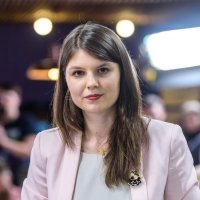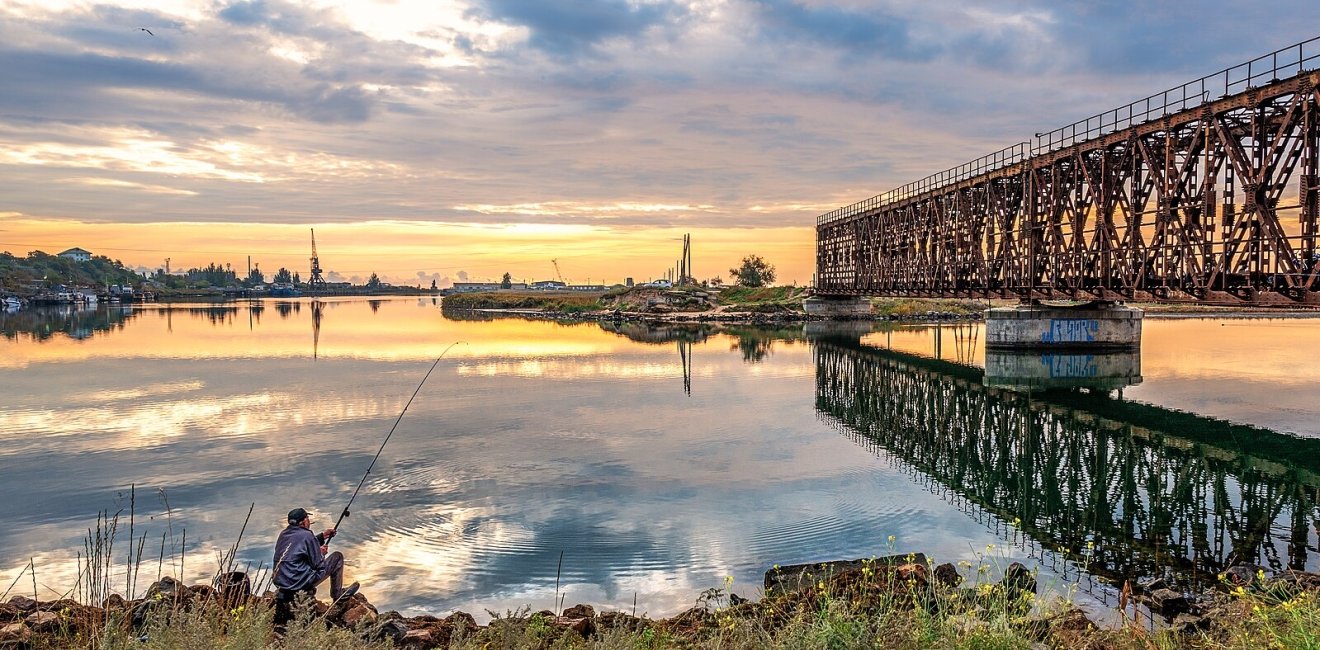
A blog of the Kennan Institute
On the first day of the full-scale invasion, Russian forces advanced from annexed Crimea into Ukraine's Kherson region, swiftly seizing control of the territory. While Ukraine’s counteroffensive has since liberated the western bank of the Dnipro River, more than half a million residents remain under Russian occupation on the eastern side, where the front lines remain fiercely contested. Russia’s ongoing strategies to gain political control over the temporarily occupied territories have had devastating results for the health, culture, and freedom of Ukrainians living in those territories and for the ecosystem writ large.
Establishing Political Control
In 2022, Russia urgently orchestrated a referendum, illegal under Ukrainian law, and officials declared that 87.05 percent of voters in the region favored joining Russia. The inclusion of occupied Ukrainian territories in Russia's constitution creates a surreal legal paradox, positioning Ukraine as the "occupying" force of these regions. It also provides a "justification" for Russia to demand the "liberation" of territory currently under the control of the legitimate Ukrainian government as part of any peace deal.
Russia further entrenched control over the occupied regions with the 2023 regional elections, when Russia conducted so-called local "elections" in Ukraine's occupied territories. A law Russia enacted in May 2023 facilitated the establishment of extraterritorial polling stations—makeshift outdoor sites and mobile units—an innovation applied exclusively in the annexed regions.
Russia’s calculated strategy is directed toward the full political, economic, and social absorption of residents into Russia and the severing of their ties to Ukraine. It encompasses the imposition of the Russian system of governance and the appointment of Russians and pro-Russian Ukrainians to decision-making positions, flooding the media with propaganda, substitution of the ruble for Ukraine’s hryvnia, replacement of school textbooks and curricula with ones favoring Moscow’s perspective, and even a shift to Moscow’s time zone.
Filtration Camps
Most concerning, however, is the human rights situation. Systematic violations have fostered a pervasive climate of fear among local residents. At the onset of the full-scale invasion, Russians created a network of filtration camps to detain the local population, targeting those deemed undesirable or a threat to Russian interests. It is a horrific means to control the physical bodies of Ukrainians.
“The temporarily occupied territories of Ukraine have turned into an open-air prison, governed by the rules of a strategic facility,” stated the National Resistance Center. To maintain and reinforce this situation, Russian invaders are forming distinct units under the Russian Ministry of Internal Affairs tasked with filtering the local population. Reports of uncovered torture chambers in liberated areas, such as Kherson, provide an understanding of what may be occurring under occupation.
The National Resistance Center of Ukraine reports that in August 2024, under the guidance of Russia’s Deputy Prime Minister Marat Khusnullin, a working group finalized proposals for a “special infrastructure project,” the construction of "centers for the temporary detention of foreign nationals and stateless persons." Following a series of sham electoral processes, these centers have been repurposed for the "reeducation" of individuals reluctant to obtain Russian citizenship.
Forceful Passportization
The Kremlin imposed a deadline of December 31, 2024, for all citizens in the temporarily occupied territories to acquire Russian passports.
The forceful passportization is reinforced by a housing certification program, with some residents facing denials for certificates, particularly those without Russian passports. Over 100,000 residents of occupied Kherson allegedly received housing certificates for properties in Russia or seized areas, and many of those purchased homes, primarily in occupied Crimea and Krasnodar Krai, as well as in Russia’s Rostov and Moscow oblasts. This program is a tool for the resettlement of Ukrainians.
The primary motivation for applying for such certificates is desperation, not pro-Russia sentiments, as many residents of Kherson have ultimately sold their apartments acquired through the housing certificates. Meanwhile, the occupying authorities are seizing the homes of people who fled the occupation. They aim to repurpose these properties for the housing of Russian military personnel and to encourage specialists from Russia to move there.
Youth Indoctrination
Peaceful demonstrations have long stopped under violent repression as authorities have quashed dissent and stifled free speech. In this framework, the brainwashing of children has become a major aim.
Around 40,000 Ukrainian children were taken to “reeducation camps” during the summer of 2024 as part of the Russia’s “Useful Vacations” project, nearly doubling last year's numbers. These children have been exposed to propaganda trips in Moscow, Saint Petersburg, Rostov-on-Don, and Tula. Authorities are also setting up “patriotic” organizations, such as the "Young Guard," a façade for the military training of teenagers.
Children are also regarded as potential informants on their parents' pro-Ukrainian sentiments. Before the school year started, Russian authorities held a seminar for teachers aimed at identifying students who might express support for Ukraine. In a particularly cynical twist, the occupiers framed this initiative as a means of addressing "deviant behavior." Educators were instructed in how to report "disloyal children" and utilize their observations to assess parental attitudes.
Worsening Health Care and a Ruined Ecosystem
The health care situation in the occupied left bank of Kherson is deteriorating. Many clinics are understaffed as qualified doctors have fled, and those from Russia are hesitant to take permanent positions, typically working only in two- to three-week shifts. As my sources informed, the discovery of expired medications in some facilities has also prompted criminal investigations.
Yuriy Sobolevskyi, first deputy head of the Kherson Regional Council, claimed that one of the reasons for the deteriorating situation is corruption. The occupation authorities are inflating their reported medical staff numbers to obtain funding for health care workers’ salaries. This discrepancy persists as many professionals have refused Russian pay, have fled the area, or are not actively working, leading to significant misallocation of resources.
Beginning in 2025, Ukrainian residents of the occupied territories will be denied access to free medications for chronic conditions such as bronchial asthma. This practice, already instituted in Starobilsk, Luhansk oblast, is described by the National Resistance Center as an attempt at genocide.
Meanwhile, the water crisis is severe, especially in Henichesk and Skadovsk, where low-quality drinking water is supplied. The Russian military is prioritized for both water and medical care, leaving local residents’ needs largely unaddressed.
Russia continues its ecocide in Kherson region. The aftermath of the 2023 destruction of the Kakhovka Dam resulted in widespread flooding, environmental devastation, and the displacement of thousands, with little to no remedial action taken. Similarly, the occupation of Askania-Nova, a national park and biosphere reserve located in Kherson oblast, underscores ongoing ecological destruction as reports of rampant fires and the kidnapping and slaughter of wildlife continue to emerge.
Conscription into the Russian Armed Forces
The Russian-appointed leader of the temporarily occupied Kherson oblast, Volodymyr Saldo, has announced conscription of people living in these territories into the Russian armed forces starting October 1, 2024, and continuing through the end of the year. According to the official statement, the conscripts will serve in units of Russia’s Southern Military District and are not to be deployed in the so-called special military operation. However, Russian authorities have a track record of failing to uphold their promises.
Erasure of Culture and Identity
The suppression of Ukrainian culture and identity is alarming. Russians aim to undermine Ukrainian identity from an early age, while the removal of cultural artefacts signifies a deliberate attempt to erase historical ties and forced passportization, with its attendant consequences, is nothing less than a means to turn Ukrainian citizens unwillingly into Russian citizens.
The Kremlin continues its policy of altering the ethnic landscape in Ukraine’s occupied territories by filling spaces gradually emptied of Ukrainians with Russians. The social benefits afforded to Russians relocating to these regions include significant financial incentives of 3 million to 5 million Russian rubles, aimed primarily at certain specialists moving with their families.
With little chance for liberation in sight, the results of Russification may ultimately be devastating.
The opinions expressed in this article are those solely of the author and do not reflect the views of the Kennan Institute.
Author


Kennan Institute
The Kennan Institute is the premier US center for advanced research on Eurasia and the oldest and largest regional program at the Woodrow Wilson International Center for Scholars. The Kennan Institute is committed to improving American understanding of Russia, Ukraine, Central Asia, the South Caucasus, and the surrounding region through research and exchange. Read more

Explore More in Focus Ukraine
Browse Focus Ukraine
Talking to the Dead to Heal the Living

Ukrainian Issue in Polish Elections


